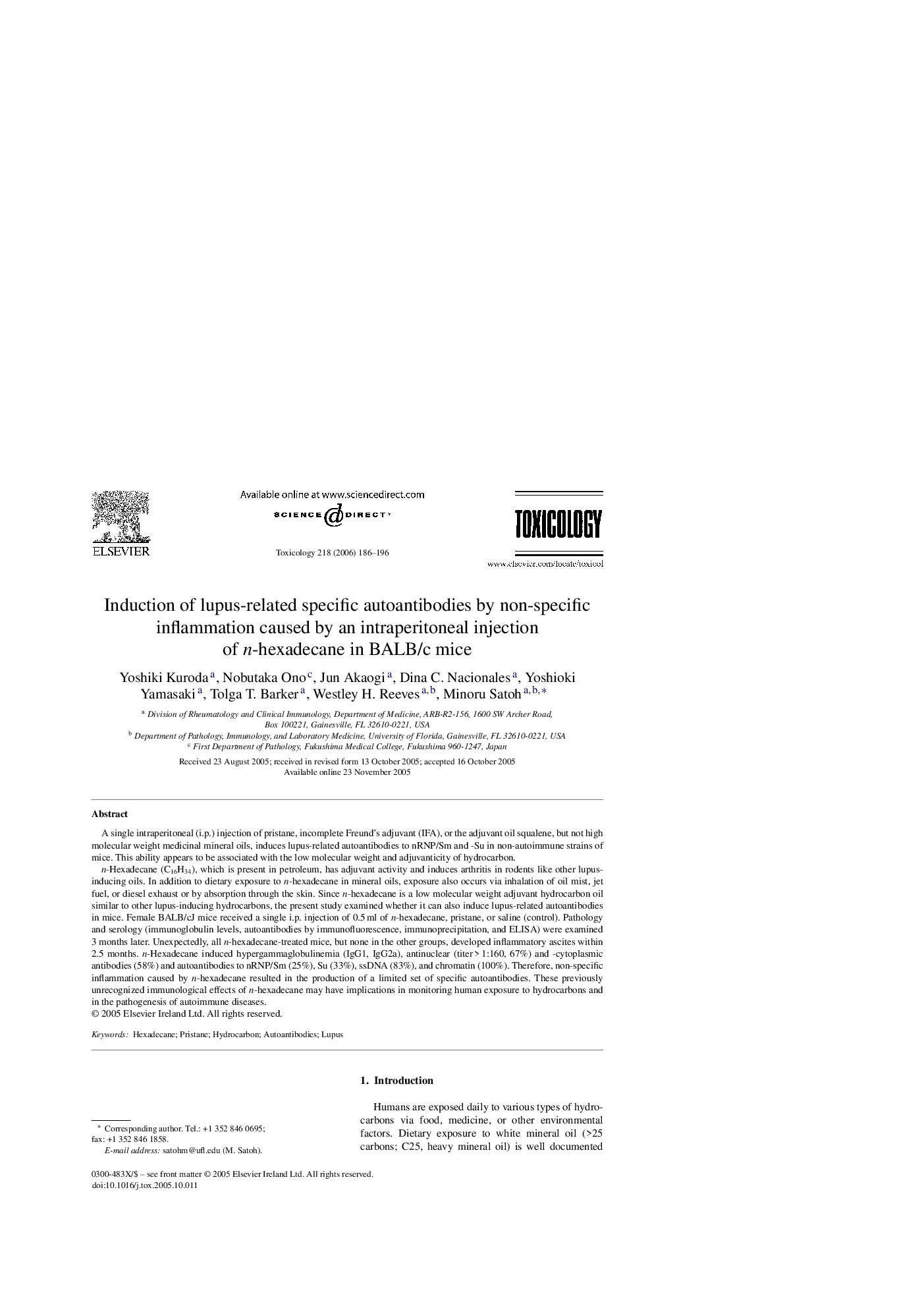| Article ID | Journal | Published Year | Pages | File Type |
|---|---|---|---|---|
| 2598282 | Toxicology | 2006 | 11 Pages |
A single intraperitoneal (i.p.) injection of pristane, incomplete Freund's adjuvant (IFA), or the adjuvant oil squalene, but not high molecular weight medicinal mineral oils, induces lupus-related autoantibodies to nRNP/Sm and -Su in non-autoimmune strains of mice. This ability appears to be associated with the low molecular weight and adjuvanticity of hydrocarbon.n-Hexadecane (C16H34), which is present in petroleum, has adjuvant activity and induces arthritis in rodents like other lupus-inducing oils. In addition to dietary exposure to n-hexadecane in mineral oils, exposure also occurs via inhalation of oil mist, jet fuel, or diesel exhaust or by absorption through the skin. Since n-hexadecane is a low molecular weight adjuvant hydrocarbon oil similar to other lupus-inducing hydrocarbons, the present study examined whether it can also induce lupus-related autoantibodies in mice. Female BALB/cJ mice received a single i.p. injection of 0.5 ml of n-hexadecane, pristane, or saline (control). Pathology and serology (immunoglobulin levels, autoantibodies by immunofluorescence, immunoprecipitation, and ELISA) were examined 3 months later. Unexpectedly, all n-hexadecane-treated mice, but none in the other groups, developed inflammatory ascites within 2.5 months. n-Hexadecane induced hypergammaglobulinemia (IgG1, IgG2a), antinuclear (titer > 1:160, 67%) and -cytoplasmic antibodies (58%) and autoantibodies to nRNP/Sm (25%), Su (33%), ssDNA (83%), and chromatin (100%). Therefore, non-specific inflammation caused by n-hexadecane resulted in the production of a limited set of specific autoantibodies. These previously unrecognized immunological effects of n-hexadecane may have implications in monitoring human exposure to hydrocarbons and in the pathogenesis of autoimmune diseases.
